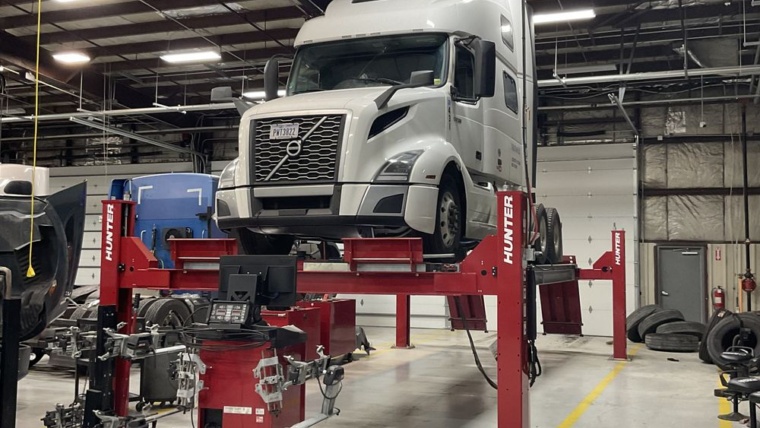Heavy-duty trucks are the backbone of many industries. From transporting goods across cities to hauling construction materials, these trucks work tirelessly day in and day out. Given their critical role in keeping businesses moving, it’s essential to maintain them properly. One of the most fundamental yet often overlooked aspects of maintenance is regular oil changes. Ensuring that your truck’s oil is fresh and clean can make a significant difference in the vehicle’s performance and longevity.
If you’re a truck owner in Manitoba, you’ve likely searched for a Truck Repair Shop in Winnipeg to keep your fleet in top shape. Regular oil changes should be a top priority during your visits. Let’s delve into why oil changes are so important for heavy-duty trucks and how it benefits not only your vehicle but your bottom line.
Why Oil Changes Matter for Heavy-Duty Trucks
Heavy-duty trucks experience more strain and wear than regular passenger vehicles due to their size, load capacity, and the long distances they travel. Oil plays a vital role in reducing friction between engine parts, cooling the engine, and preventing wear and tear. Over time, however, oil breaks down and becomes less effective. When this happens, it loses its ability to lubricate the engine effectively, leading to potential damage.
Here are some reasons why regular oil changes are essential for heavy-duty trucks:
1. Engine Protection and Performance
Oil acts as a lubricant for all moving parts inside a truck’s engine. When oil is fresh, it coats the components efficiently, reducing friction and preventing metal-on-metal contact. This minimizes wear and tear on essential parts like the pistons, cylinders, and camshaft. Without proper lubrication, these parts can grind against each other, causing damage that can lead to costly repairs or even engine failure.
Regular oil changes keep the engine running smoothly, ensuring optimal performance. The engine remains cooler, which is particularly important for heavy-duty trucks, as they often endure high temperatures during long hauls. A well-lubricated engine not only improves performance but also increases the vehicle’s fuel efficiency.
2. Prevention of Sludge Buildup
Over time, as oil breaks down, it can form a thick sludge-like substance inside the engine. This sludge can clog oil passages and restrict the flow of oil to critical engine parts. In heavy-duty trucks, which often experience long operating hours and harsh conditions, sludge buildup can happen faster than in smaller vehicles.
Sludge can severely impact engine performance, causing overheating and, in the worst cases, engine failure. Regular oil changes flush out the old, contaminated oil and replace it with fresh oil, preventing sludge from forming. Keeping the oil clean ensures that it flows smoothly and reaches all parts of the engine.
3. Fuel Efficiency
Fuel efficiency is a major concern for truck owners, especially with the rising cost of diesel. A well-maintained engine consumes less fuel because it runs more efficiently. Old or dirty oil can cause the engine to work harder, consuming more fuel in the process. The additional strain on the engine can also lead to higher operating temperatures, which further decreases fuel efficiency.
Regular oil changes reduce the strain on the engine, allowing it to operate at its best. This, in turn, helps improve fuel efficiency, saving you money on fuel costs in the long run. If you’re operating a fleet of heavy-duty trucks, these savings can add up quickly, making oil changes a cost-effective maintenance solution.
4. Prolonging Engine Life
Heavy-duty trucks are significant investments, and protecting that investment is crucial for any business. One of the best ways to extend the life of a truck’s engine is through regular oil changes. Clean oil reduces friction, heat, and wear on the engine, allowing it to run smoother for a longer period.
An engine that is regularly maintained with fresh oil can last significantly longer than one that is neglected. This means fewer breakdowns, fewer costly repairs, and more time on the road generating revenue.
5. Compliance with Warranty and Maintenance Schedules
Many manufacturers of heavy-duty trucks provide warranties that are contingent on proper maintenance, including regular oil changes. Failure to adhere to the recommended oil change schedule can void your warranty, leaving you to cover the full cost of any major repairs that may arise. Following the manufacturer’s guidelines ensures that your truck stays within warranty and operates at peak performance.
Visiting a Truck Repair Shop in Winnipeg regularly for oil changes not only helps with warranty compliance but also provides an opportunity for a professional mechanic to inspect the truck for any other potential issues.
How Often Should You Change the Oil in a Heavy-Duty Truck?
The frequency of oil changes depends on several factors, including the type of oil used, the truck’s make and model, and its operating conditions. In general, most manufacturers recommend oil changes every 15,000 to 25,000 miles for heavy-duty trucks. However, this can vary depending on whether the truck is used for long-haul driving, off-road conditions, or other intensive tasks.
It’s essential to consult your truck’s manual for the manufacturer’s specific recommendations. Additionally, many modern trucks come equipped with oil life monitoring systems that alert you when it’s time for an oil change. These systems use sensors to track oil quality and usage, providing a more accurate indication of when an oil change is necessary.
Choosing the Right Oil for Your Heavy-Duty Truck
Not all oils are created equal, and using the right oil for your truck is critical to ensuring optimal performance. Heavy-duty trucks require oil that can withstand extreme conditions, such as high temperatures and heavy loads. It’s important to choose an oil that meets the manufacturer’s specifications, as using the wrong type of oil can lead to engine damage or reduced performance.
There are generally three types of oil available for heavy-duty trucks: conventional, synthetic, and semi-synthetic. Synthetic oils offer superior performance and durability, making them a popular choice for heavy-duty trucks. While they may be more expensive, synthetic oils can handle higher temperatures and longer intervals between oil changes, providing better protection for the engine.
Your Truck Repair Shop in Winnipeg can help you choose the best oil for your truck based on its specific needs and your driving conditions.
Benefits of Visiting a Professional Truck Repair Shop in Winnipeg for Oil Changes
While some truck owners may opt for DIY oil changes, visiting a professional Truck Repair Shop in Winnipeg offers several advantages:
- Expertise: Professional mechanics have the knowledge and tools to perform oil changes quickly and efficiently. They can also spot any potential issues before they become major problems, ensuring your truck stays on the road.
- Proper Disposal: Used oil must be disposed of properly to protect the environment. A professional repair shop will take care of this responsibly.
- Comprehensive Service: In addition to changing the oil, a truck repair shop will typically perform a full inspection of your vehicle, checking for any other maintenance needs, such as filter replacements or fluid top-ups.
Conclusion
Regular oil changes are an essential part of maintaining heavy-duty trucks. They protect the engine, improve fuel efficiency, prevent costly breakdowns, and extend the life of the vehicle. By visiting a trusted Truck Repair Shop in Winnipeg, truck owners can ensure that their vehicles receive the care and attention they need to operate at their best.
In the long run, staying on top of oil changes not only saves money but also enhances safety and reliability, keeping your business moving without unnecessary downtime.




